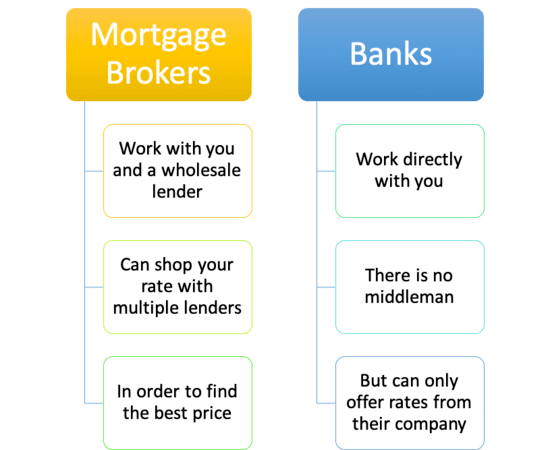Jumbo Loan vs Standard Loan: Trick Distinctions Described
Jumbo Loan vs Standard Loan: Trick Distinctions Described
Blog Article
Recognizing What a Jumbo Lending Entails and Just How It Differs From Traditional Car Loans
Browsing the complexities of big lendings discloses a financing choice customized for those venturing right into high-value realty, normally exceeding the limitations set by the Federal Housing Finance Company. On the other hand, traditional car loans are typically more accessible, gaining from backing by entities such as Fannie Mae and Freddie Mac. The considerable risk related to jumbo loans demands much more rigid certification needs, including greater credit rating and significant down settlements. As these two lending kinds cater to varying economic landscapes, recognizing their nuances is important for making educated decisions in the complex globe of property financing. How do you identify which path ideal fits your financial strategy?
Meaning of Jumbo Fundings
Jumbo car loans are a sort of mortgage that go beyond the adhering funding limitations set by the Federal Housing Finance Company (FHFA) These lendings accommodate consumers that require to finance properties that are much more costly than what conventional finance restrictions enable. The FHFA establishes annual conforming lending restrictions, and any type of finance surpassing these thresholds is classified as a big car loan.
Normally, big fundings are used in high-cost real estate markets where home costs significantly surpass national averages, such as in cities or high-end real estate sectors. As these fundings are not eligible for purchase by Fannie Mae or Freddie Mac, they lug fundamental threats for lenders as a result of their larger dimension and non-conformity (jumbo loan). Loan providers commonly enforce extra rigorous certification criteria for jumbo loans than conventional adjusting finances.
Consumers seeking big lendings should usually demonstrate a strong economic profile, including a higher debt score, robust revenue confirmation, and significant deposit, frequently 20% or even more. Additionally, loan providers may require much more extensive paperwork to analyze the borrower's capability to manage bigger regular monthly repayments. Comprehending the specific attributes of big car loans is crucial for possible debtors browsing this sector of the home mortgage market.
Standard Fundings Review
While big lendings provide to high-value building financing, traditional car loans represent the more usual home loan option in the housing market. These lendings are not insured or assured by any type of government entity, such as the Federal Real Estate Management (FHA) or the Division of Veterans Affairs (VA) Rather, they are backed by exclusive lenders and comply with guidelines established by government-sponsored enterprises (GSEs) like Fannie Mae and Freddie Mac.
Standard lendings are normally supplied with fixed or adjustable rates of interest and vary in regards to duration, frequently extending 15 to 30 years. Consumers typically choose standard lendings for their predictable regular monthly repayments, which can assist in long-lasting monetary planning. In addition, they are readily available for key residences, second homes, and investment residential or commercial properties, providing versatility to fulfill diverse consumer needs.

Trick Differences Between Fundings
Recognizing the nuances in between various sorts of lendings is vital for potential buyers browsing the intricate mortgage landscape. At the leading edge of this decision-making procedure are conventional loans and check that jumbo car loans, each possessing distinct attributes and serving different borrower demands. The key difference relaxes in the loan quantity. Big loans exceed the adapting finance limitations established by the Federal Real Estate Money Agency (FHFA), which differ by region. On the other hand, traditional lendings stick to these limitations and are typically bought by government-sponsored entities like Fannie Mae and Freddie Mac.

In addition, the deposit needs can vary considerably. Big loans usually call for bigger down payments, sometimes surpassing 20%, to alleviate threat. Traditional car loans, conversely, might enable lower deposits, with some programs approving as little as 3% for qualified buyers.
Qualification Requirements
Securing a jumbo loan includes satisfying extra stringent credentials demands compared to traditional car loans, mirroring the enhanced threat to lenders. These fundings, which exceed the conforming lending limitations established by the Federal Real Estate Money Agency (FHFA), are not eligible for acquisition by Freddie Mac or Fannie Mae, thereby subjecting lenders to greater economic threat - jumbo loan. Because of this, customers need to demonstrate a high creditworthiness and monetary stability
A durable credit history rating, normally 700 or higher, is important for authorization. Lenders additionally expect a reduced debt-to-income (DTI) proportion, usually not exceeding 43%, making sure that consumers can take care of significant month-to-month payments try this website together with other financial commitments. A substantial money reserve is normally required, generally amounting to 6 months of mortgage repayments, to assure lenders of the borrower's financial durability.
Down payment expectations are also raised, often starting at 20% or more of the property's value. While this is a secure for lending institutions, it necessitates considerable upfront capital from borrowers.
Selecting the Right Car Loan
Navigating the intricacy of jumbo financings needs mindful consideration when selecting the most suitable financing alternative. With the more comprehensive variety of choices offered to those looking for big fundings, the decision-making process must entail an extensive evaluation of one's economic account and lasting goals. Unlike traditional finances, jumbo car loans commonly feature more stringent demands and differed rates of interest, which demand comprehensive research and a clear understanding of one's economic standing.
When picking in between various big loan offerings, it is important to review the lending terms, consisting of rates of interest, settlement schedules, and associated fees. Customers need to compare the rates given by different lenders to guarantee they secure one of the most favorable terms. Furthermore, understanding the implications of repaired versus adjustable-rate home mortgages (ARMs) is important, as each alternative presents unique advantages and threats depending upon market problems and individual financial strategies.
Involving with a financial consultant or home mortgage broker can provide valuable insights tailored to specific conditions. These professionals can assist in navigating the nuances of jumbo financings, guaranteeing that borrowers are well-informed and geared up to choose a loan that aligns with their economic goals, eventually promoting a smoother home-buying procedure.
Conclusion
In recap, jumbo financings work as a financial tool for getting high-value residential or commercial properties, requiring rigorous qualification needs and higher rate of interest because of the elevated danger for loan providers. Unlike conventional fundings, which adapt FHFA restrictions and may obtain support from Fannie Mae or Freddie Mac, jumbo lendings need a minimal credit history of 700 and substantial deposits. Recognizing these distinctions is critical for customers in high-cost realty markets to establish the most suitable car loan alternative for their needs.
The FHFA develops yearly adapting funding limitations, and any kind of car loan going beyond these limits is identified as a jumbo funding.
At the leading edge of this decision-making procedure are traditional lendings and jumbo car loans, each having helpful hints distinctive features and serving various consumer needs.Securing a big finance includes fulfilling more rigorous qualification demands contrasted to traditional car loans, mirroring the increased threat to loan providers. Unlike traditional lendings, jumbo financings usually come with more stringent requirements and differed rate of interest rates, which necessitate thorough study and a clear understanding of one's economic standing.
Unlike standard fundings, which conform to FHFA restrictions and may obtain backing from Fannie Mae or Freddie Mac, jumbo finances need a minimal debt score of 700 and substantial down settlements.
Report this page